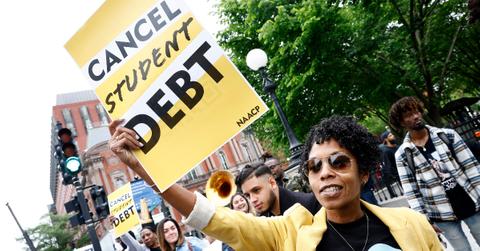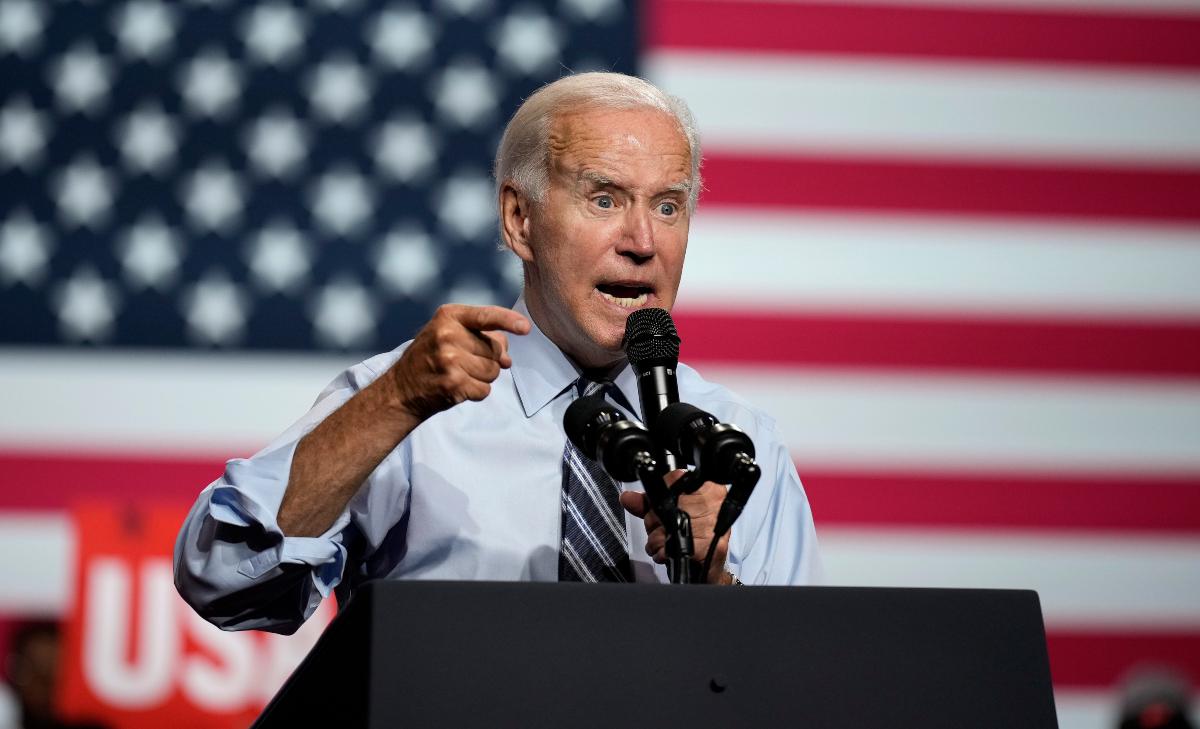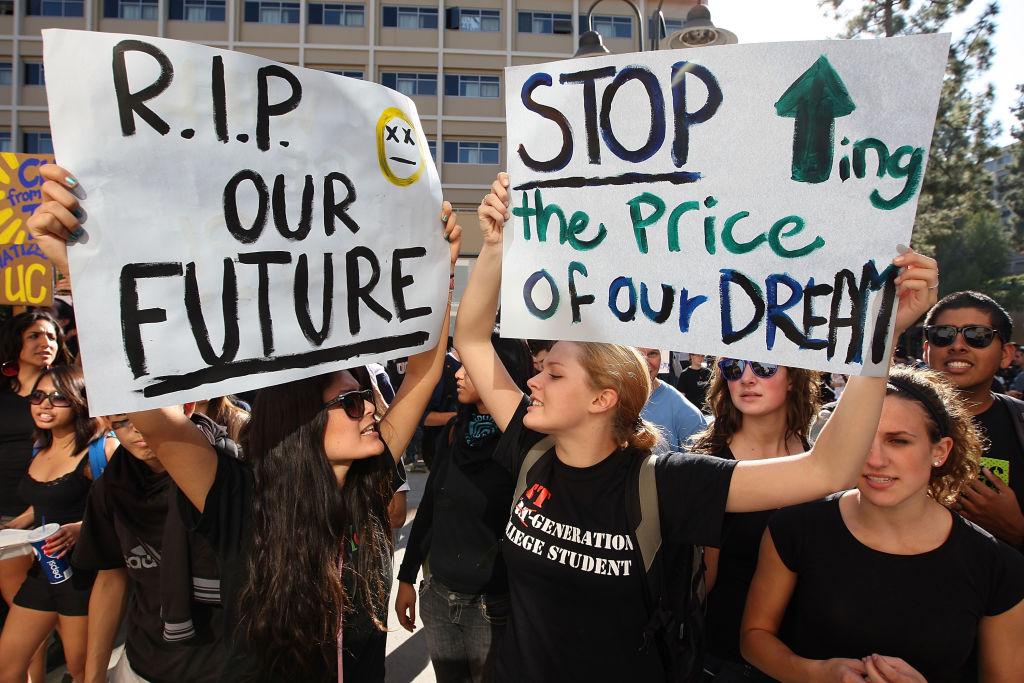Is Canceling Student Loan Debt a Bad Idea? Cons, Explained
President Joe Biden has announced the cancelation of student loans for up to $20,000 per borrower. However, it's a bad idea economically.
Aug. 26 2022, Published 8:24 a.m. ET

Individuals gather to protest the backtrack of student loan debt cancellation.
Fulfilling one of his key election promises, President Joe Biden has announced the cancelation of student loans for up to $20,000 per borrower. While student loan borrowers have reasons to be jubilant, canceling student loans is a bad idea economically.
Along with canceling loans, Biden has extended the pause on student loan repayments until the end of 2022. Yet again, the administration has said that the moratorium is “final” and repayments will resume in 2023.
Why is Biden canceling student loans?
Biden’s popularity has taken a hit for multiple reasons including the administration’s handling of the Afghanistan withdrawal, multi-decade high inflation, and high gas prices. The Republicans have been largely successful in building the narrative that Biden’s energy policies are to blame for high gas prices in the U.S.
The slowing U.S. economy isn't helping matters either. Biden’s low popularity would impact Democrats’ chances in the upcoming midterm elections. Also, Biden promised student loan cancelation during his presidential campaign. Many students were protesting and calling upon the administration to cancel loans.
Canceling student loans (or any loan) is a bad idea.
Overall, canceling any loans, including student loans, is a bad idea. While it would make sense for Biden and Democrats politically, there will be economic consequences. There are multiple reasons why canceling student loans is a bad idea, including:
- Student loan cancelation sets a bad precedent and hurts credit culture.
- From a moral perspective, it is tantamount to buying votes.
- It penalizes the entire society while benefiting only those who went to college.
- It is inflationary.
- The legality of Biden’s loan forgiveness is debatable.
First, loan cancelations have seldom solved any problems. If anything, it hurts the credit culture in the country. While some student loan borrowers might have been cheated by their colleges, most others took an informed decision to borrow for their higher education.
Loan forgiveness sets a bad precedent and we can be almost sure of more cancelations in the future. India is a case in point where multiple rounds of loan cancelations for farmers haven't solved the farmers’ problems and every few years there are calls to cancel more farmer loans.
Loan cancelation has a massive cost.
Loan cancelation has a massive cost that would eventually be borne by the average American. While it remains to be seen how much the loan cancelation will eventually cost as not all borrowers might opt for one, the costs would still be significant.
Loan cancelations are also immoral. From the Biden administration’s perspective, it's almost tantamount to buying votes ahead of the midterm elections. The cost of loan forgiveness would also be borne by those who could barely completed high school. The average collegegoer earns a lot more than those who didn't (or couldn't) go to college.
The loan cancelation and the multiple extensions of the student loan moratorium are also inflationary. At a time when the Fed is trying to lower U.S. inflation by raising interest rates, the Federal government’s expansionary fiscal policy makes its job tougher.
The legality of Biden’s student loan cancelation is debatable.
Betsy DeVos, who was the Education Secretary in the Trump administration, has termed Biden’s student loan cancelation as illegal. Large spendings, like student loan cancelation, have to go through Congress and many believe that Biden doesn't have the power to take such big financial decisions without getting it ratified by Congress.


